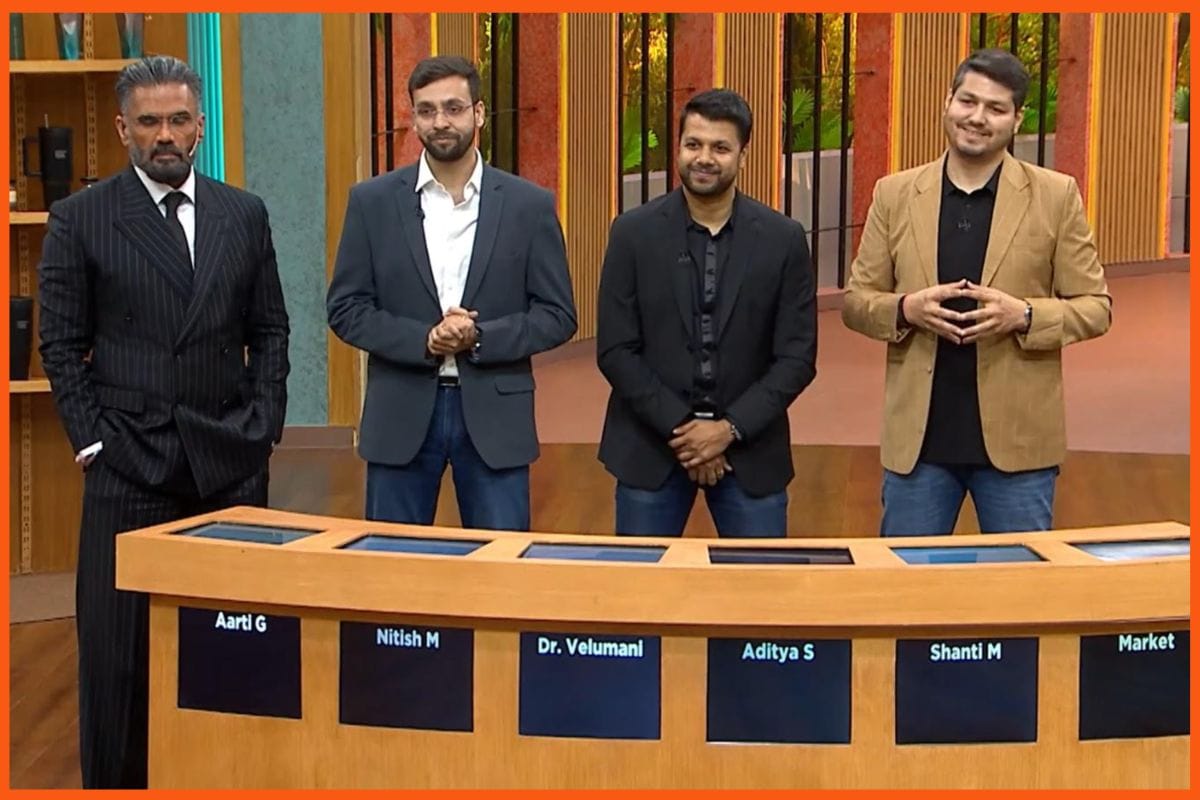Vikram Prabakar on Recykal’s Mission to Revolutionize Waste Management and Propel India’s Circular Economy
📝Interviews
In this interview, Vikram Prabakar, Chief Technology Officer at Recykal, tells about Recykal's waste management. To support India’s shift toward a circular economy. Prabakar explains key initiatives like the EPR Compliance Platform and Recykal8 Marketplace, which improve transparency and efficiency in the waste sector. Vikram Prabakar lastly talks on Recykal’s achievements in 2024, the challenges of educating stakeholders, and the company’s plans for growth and innovation in sustainable technology.
StartupTalky: Can you briefly explain what Recykal does and what core solutions it offers?
Mr. Prabakar: Recykal is a pioneer in enabling a sustainable and circular economy by leveraging innovative, technology-driven solutions for waste management. Its digital platforms seamlessly bridge between waste generators, recyclers, producers, and policymakers, ensuring efficient waste collection, recycling, and compliance reporting.
Vision: To build a self-sustaining circular economy in India.Mission: To divert at least 10% of waste from landfills, channeling it into recycling and reuse.
Core Solutions:
- EPR Compliance Platform: Tracks and traces EPR targets, transactions, and performance.
- Recykal8 Marketplace: A B2B platform facilitating the trade of post-consumer resin and yarn.
- Managed Marketplace: A platform for recyclers and aggregators of plastic, metal, paper, and e-waste to form a cohesive network.
- Circularity Platform: A SaaS-based solution to manage industrial and facility waste.
- Digital Deposit Refund System (DRS): Encourages responsible waste disposal and enhances recycling opportunities.
- V’Code: A cloud-based USI printing technology designed to combat product counterfeiting.
StartupTalky: How has Recykal grown its presence in the waste management ecosystem this year, and what were the major milestones in 2024?
Mr. Prabakar: Recykal is revolutionizing India’s circular economy through innovative digital solutions that ensure transparency and traceability. Since 2023, it has successfully diverted 12 billion plastic bottles, 100K+ metric tons of metal, and 90K metric tons of paper and e-waste from landfills, demonstrating its ability to formalise waste streams at scale.
2024 Milestones:
- Recognised as the Most Trusted Brand of 2024-25 by Marksmen Daily.
- Awarded Best Circular Economy Initiative 2024 by UBS Forums.
- Featured among the Top 10 Climate Innovators by the Indo-Pacific Economic Framework for Prosperity.
- Recognised as Nasscom’s AI Gamechanger 2024
- Honoured by Times Now, NASSCOM, and the World Economic Forum for sustainability and innovation.
StartupTalky: What are the key trends shaping India’s waste management sector, and where is the industry heading in the next 2-3 years?
Mr. Prabakar: The Central Pollution Control Board's (CPCB) recent guidelines on Extended Producer Responsibility (EPR), recycling, and the use of recycled content in plastic packaging represent a significant advancement towards a circular economy. Beginning in the fiscal year 2025, producers, importers, and brand owners of plastic packaging will be required to include a minimum percentage of recycled content in their products. This phased approach, starting at 30% for rigid plastics and increasing annually, underscores India’s commitment to tackling the growing issue of plastic pollution.
Deposit return schemes are gaining traction as an effective solution. In response to the rising concern over waste contamination, the introduction of a digital deposit refund system not only prevents plastic littering but also drives mass behavioural change towards responsible waste disposal.
Tracking the lifecycle of product packaging—beyond mere EPR compliance—by taking proactive steps towards plastic recovery is emerging as a key sustainability trend focused on protecting the environment.
In the batteries and electronics sector, repair, refurbishing, recycling, and remanufacturing are becoming the new standard, marking a significant shift towards more sustainable practices.
In the next 2-3 years, the industry is expected to see rapid digital transformation, stronger policy enforcement, and greater participation from businesses and consumers, accelerating the transition to a circular economy.
StartupTalky: Recykal was featured on Fortune's Change the World List for its social impact. How does your technology drive this impact?
Mr. Prabakar: Recykal's inclusion in Fortune’s 2023 Change the World list highlights its transformative contribution to waste management through innovation and sustainability. Till 2023, it processed 700,000 metric tons of waste, reducing carbon emissions and diverting waste from landfills.The Recykal Marketplace has redefined India’s waste management landscape by integrating informal waste pickers and scrap dealers into the formal economy, improving their livelihoods and ensuring industry standardisation. Additionally, its innovative approach has driven business growth, with revenue increasing from $8 million in 2021 to $95 million in 2023.
StartupTalky: What challenges do you face in onboarding businesses, brands, and recyclers onto your platform, and how do you overcome them?
Mr. Prabakar: In the early stages, working in the waste management industry was challenging, as it was not regarded as a conventional or widely accepted business. Combining waste management with technology—referred to as "Kachre me internet"—was an unconventional approach that raised eyebrows among stakeholders.
Fraudulent activities, such as the practice of filling packaging with water or stones to artificially increase waste weight, presented significant challenges. However, by implementing stringent quality checks at every stage, we were able to overcome these obstacles, which in turn strengthened the integrity of our operations.
The introduction of Extended Producer Responsibility (EPR) marked a pivotal moment. The mandate for businesses to meet their EPR goals provided a substantial boost to the circular economy, further enhancing our operations.
In the wake of the COVID-19 pandemic, sustainability has emerged as a key priority. With a growing focus on eco-friendly practices, organisations across industries are aligning with our mission to create a positive environmental impact.
Challenges Faced:
- Resistance to Change: Many stakeholders were hesitant to adopt digital solutions due to unfamiliarity with new systems.
- Awareness Gaps: There was limited understanding of EPR regulations and the advantages of a circular economy.
- Trust and Transparency Concerns: Some stakeholders expressed doubts about data traceability and compliance, hindering full adoption.
How Recykal Overcomes These Challenges:
- Education and Advocacy: Recykal hosts webinars and provides thorough onboarding support to educate stakeholders about the platform and its benefits.
- User-Friendly Platforms: We’ve designed simplified interfaces that make it easy for users to adopt and navigate digital tools.
- Transparent Systems: By ensuring compliance through traceable and transparent processes, Recykal has built trust among its users.

StartupTalky: What role does your B2B marketplace play in connecting stakeholders across the value chain, and how does it drive revenue growth?
Mr. Prabakar: Recykal’s B2B Marketplace bridges the gap between sellers and buyers in the waste ecosystem, ensuring seamless transactions. Acting as both a buyer and seller, the marketplace leverages AI-driven tools for compliance, transparency, and quality assurance. This integration improves operational efficiency, reduces risks, and increases transaction volumes, ultimately driving revenue growth while fostering trust across the value chain.
StartupTalky: What key regulatory or policy changes do you think are needed to speed up the formalisation of India’s waste management sector?
Mr. Prabakar: Recykal believes that the following regulatory and policy changes are essential to accelerate the formalisation of India’s waste management sector :
- Incentives for Recycling Infrastructure: Introducing subsidies and financial support for setting up recycling plants can encourage investment in waste management facilities.
- Standardised Guidelines: Establishing uniform protocols for waste collection, segregation, and recycling will create consistency and efficiency across the sector.
- Consumer Participation Policies: Implementing programs that actively engage the public in recycling efforts will drive greater awareness and participation in sustainable practices.
These measures can create a robust framework, enhancing India’s transition towards a circular economy and ensuring sustainable waste management practices.
StartupTalky: What are Recykal’s plans for 2025 in terms of expansion, new technologies, and global collaborations?
Mr. Prabakar: In 2025, Recykal aims to further its mission of transforming waste into opportunities by expanding its reach and capabilities. The company plans to scale its Marketplace, strengthening links across the waste ecosystem for greater transparency and efficiency.
Recykal is also set to lead advancements in digital Deposit Refund Systems (DRS), taking its globally recognized model to new markets and driving responsible recycling practices worldwide. With a focus on innovation, the company intends to introduce cutting-edge technologies that enhance circularity and enable sustainable practices at a larger scale.
Furthermore, Recykal is exploring global collaborations to amplify its impact, making circularity a universal business norm and cementing its position as a catalyst for global change.

Must have tools for startups - Recommended by StartupTalky
- Convert Visitors into Leads- SeizeLead
- Website Builder SquareSpace
- Run your business Smoothly Systeme.io
- Stock Images Shutterstock






